Alicia Roth Weigel has dedicated her career to working with marginalized populations and advocating for women’s rights. But up until this year, the 27-year-old carried a secret about her identity and didn’t feel safe advocating for her own rights and needs.
A native of Philadelphia, Weigel graduated college fluent in Spanish and Portuguese, so after school, she was hired to do tech marketing in Latin America. But her heart just wasn’t in it, and she decided to pull the plug on that career path before she got in too deep. Weigel quit her job, and after being inspired by Spark, an organization she’d gotten involved in for after-work fulfillment, she decided to spend her sabbatical doing short-term consulting with early stage nonprofits led by women in sub-Saharan Africa.
“I knew I wanted to move into social change work — I had volunteered in a variety of things over the years — but I wanted to gain some credibility in that space and see where I’d fit best,” she says. After spending time in Angola and South Africa, she returned to the U.S. for a job in marketing communications for nonprofit clients, which she considered to be a transitional role. Then she got the call that would not only help her transition to full-time advocacy work, but would also change her life.
Wendy Davis is a former Texas State senator who rose to fame overnight after a successful filibuster against anti-abortion legislation in 2013. After serving in the state Senate and running for governor (sadly, she lost), Davis started a nonprofit called Deeds Not Words, aimed to inspire young women to create positive change in the world. After having connected with Spark months prior, Davis’s team wanted Weigel on board. So Weigel moved to Austin in October 2016 for the organization, where she is now the director of policy and advocacy.
Earlier this year, her advocacy work with young women, in addition to support from Davis, helped propel Weigel to finally come out as intersex — both in front of the Texas legislature and in this Medium post. Read on to learn about Weigel’s journey to self-acceptance, her impactful public coming out story, and the current issues she and other intersex people face.
Profiles in Pride: When did you find out you were intersex? Do you remember when your parents told you?
Alicia Roth Weigel: I really don’t remember how old I was when they first told me. When I think back, my first memories are when I was starting to hit puberty. All of my friends were starting to have periods, and that wasn’t a thing for me. They were starting to go through normal pubescent development, and that was gonna look a lot different for me. That was when it started becoming obvious.
PIP: What did it feel like to know there was something different about you, but it wasn’t obvious to anyone else?
ARW: It’s an especially tough time, because when you’re a preteen or teen, the last thing you want to do is stand out. All of your life is about fitting in, whether it’s wearing the right clothing or doing whatever you’re supposed to do to fit into the pack. So that was definitely tough — and wanting to fit in in general, but also it seemed like this was something everyone in the world went through but me, these normal pubescent changes. I think it was made worse because not only did I already feel like an outsider, when that’s the last thing I wanted to feel like in that stage of my life, but the way it’s framed to you, at least to me by the doctors that I visited, is that you really want to keep this under wraps, because you don’t want to be made fun of; you don’t want people to target you.
I think it comes from a good place, because they really don’t want you to be persecuted, but at the same time, that’s why it’s so important to have this conversation with you now and get more involved in general — because the more we start to frame it not like I have some disorder that makes me a freak, but I was just born with a different life condition — then hopefully kids that age won’t be made to feel like that. They’ll just think “I’m just a different type of person, just like some people are black, some people are Jewish, some people are intersex.”
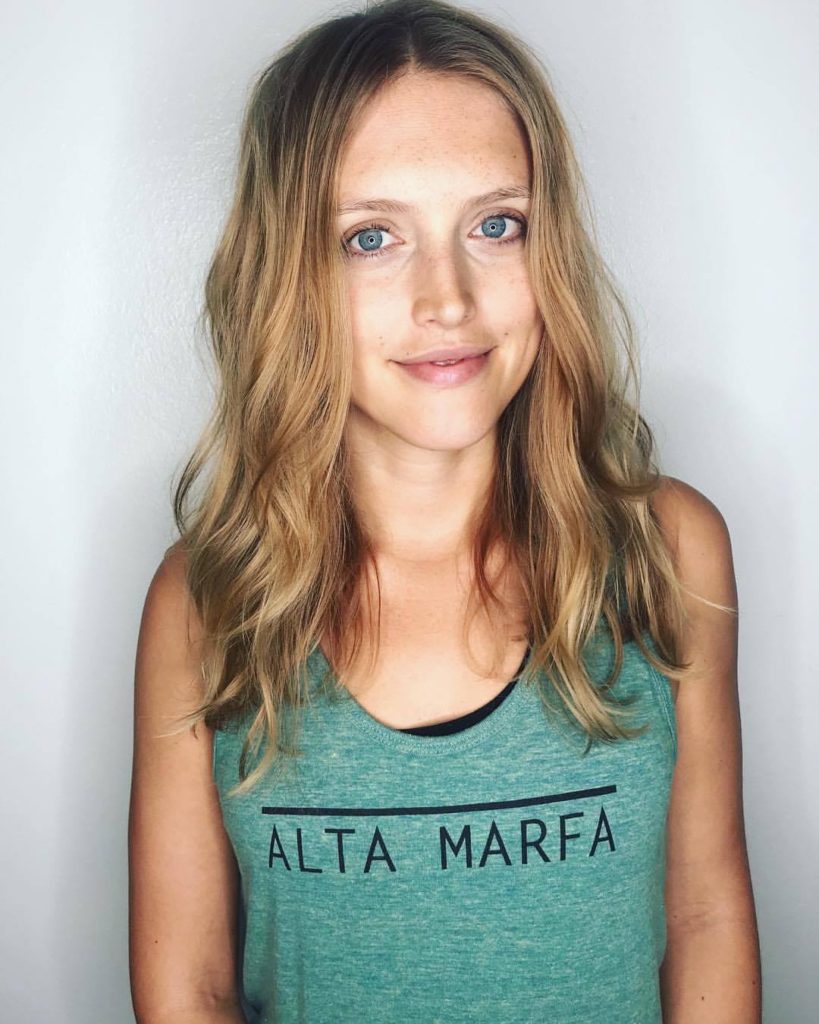
PIP: It’s amazing to hear that an estimated 2% of the population is intersex, which is larger than the estimated transgender population, but it’s not talked about nearly as much, and not as many people are comfortable coming out as intersex.
ARW: It really is, because they’re trying to normalize kids from birth with this issue. So with a trans kid for example, when they’re born, you don’t know that they’re trans. They not able vocalize that, they’re a baby. With intersex kids, with a lot of the conditions, you don’t know when they’re born. With me, for example, my intersex condition is purely internal. I’m born “phenotypically female” on the outside, so the only reason they found as early as I did is because I had a hernia as a baby, and then they were repairing the hernia, they saw this internal anatomy that didn’t adhere to what is the norm. For a lot of people, they don’t find out until they’re older, maybe until they don’t get their period and they need to figure out why that is, because there’s such a range of intersex conditions.
Though a lot of intersex kids, when they’re born, whether it’s because they have a penis and vagina, or because something’s not “the norm,” they might know either as a baby or at a much earlier age.
I think because of that, it’s the doctors who are making the decision about what should be done and essentially start playing God. They say, we’re going to make this person fit into A or B category. Then they think they’ve wiped their hands, and say, “OK, it’s done, we fixed it, we changed it, now they can live their lives.” When really, from a physical development standpoint, from an emotional standpoint, they’re not “fixed.” That’s still essentially a part of who they are.
But I think that circles back to your original question, why it’s not as talked about as trans and some of these other issues, because doctors really give the impression to parents and kids that “we’ve fixed you physically, so just never talk to anyone about it ever again.” So it stays in the shadows. Kids like me, they just try to make up lies or make up this version of themselves that’s never shown to the world or never comes out.
PIP: I’ve seen documentaries where some people didn’t know they were intersex until adulthood; their parents never told them. Something always felt different or like they were the wrong gender, and once they found out, it made so much more sense, and some even transitioned genders.
ARW: I got extremely lucky that I was born with the parents I have. My mom has had multiple careers, but one of them was she was a nurse practitioner back in the day. So she had medical knowledge and she’s also a very open-minded person. So for her, she wanted to do what she felt was best for me, but she was never embarrassed by me. I really lucked out in terms of the parents jackpot of being born with the condition I have. Because so many parents don’t want to admit it to themselves, let alone their kids or their community. That’s what we have to change.
And part of that change really boils down to changing the medical community to not call them disorders, but really just conditions. Because like being gay is not a disorder, it’s just a condition that you’re born into with your sexuality. Or being trans is not a disorder, it’s just a life condition that you’re born into in terms of your gender identity. It’s the same with intersex issues, I don’t have a disorder, I’m still able to live a functional life, I just happen to have been born with a different condition than a purely male or purely female person.
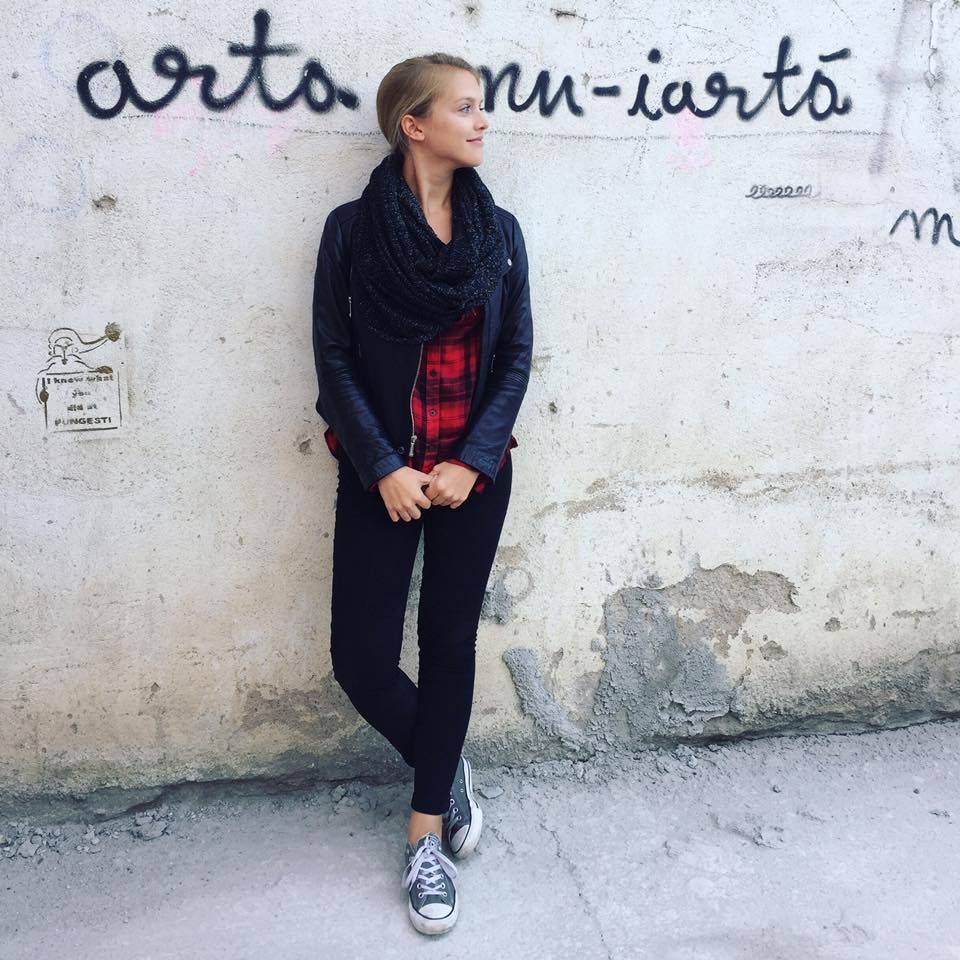
PIP: Before you were out as intersex, was it difficult dating men while carrying this secret?
ARW: Absolutely. For other intersex people who have different conditions than I do, it would likely come out a lot earlier if they have different genitalia than is what’s considered “normal” or that doesn’t fit into that binary. But for me, it really only came out when I’d start to get really really close to a boyfriend and thought it could get serious in the future. Then I’d have to talk to them and tell them “I can’t have your kids.”
Of my two serious boyfriends I’ve had in the past, one of them was fine with it, he said I love you and I’m willing to make this work. But one of them ultimately wasn’t. All my friends would tell me, and I’d tell myself, that then they’re not worth my time and love anyway if they can’t accept me for who I am and work within the confines of who I am as a person, but it is tough. And even when I told them that I couldn’t have their kids, this was long before I was comfortable saying I’m intersex or this is my condition, so I explained it in a different way. I would say I was genetically unable to have kids. I didn’t really go into the fact that it’s because I have XY chromosomes. Even with some of them who I dated for four years and loved very deeply, I still wasn’t OK enough with myself and who I was with this condition to even bring them into this loop.
Even my brother, who’s one of my best friends — he didn’t know. Neither did many of the people who were closest to me. My parents knew, and certain family members knew because we had some of my female cousins tested to see when they found out about me. But even within the family, it was kept hush hush. It really only ever came out with other people in my life if I was, to be honest, really drunk and upset and let down that guard.
And when I did come out finally this past summer, one of my friends who I’ve known since I was a kid reached out and said, “I’m so proud of you.” She remembered a time we were, I think, in middle school when we got drunk for the first time. She was like, “I remember you telling me you couldn’t have kids and you were crying and upset. I always wanted to help you through it, but I knew it was something I couldn’t help you through until you were OK with it yourself.”
PIP: It must have been such a big burden to carry for so many years.
ARW: It’s really tough. It’s funny, coming out in front of Texas legislature was not as scary as coming out to my brother, my family, and my friends. Everyone in my life who really loves me has been so overwhelmingly supportive. I’m just really lucky.
PIP: So what made you decide it was time to come out earlier this year?
ARW: At our organization Deeds Not Words, our whole mission is to help people learn to share their stories, both for their own freedom and letting go of negative feelings they might have about themselves and what happened to them, and helping them work through their own personal issues — but also to tell their stories in a way that could help other people who might have similar life experiences. So a big portion of my job is working with young people and helping to coach them through feeling comfortable enough in themselves to come forward with their stories in a way that would be productive for other people and for society at large.
And it really just started making me think about it differently. That I’m coaching people through coming forward with extremely personal information about their prior experiences of sexual assault, or lack of paid medical leave and what it meant for their family, or all of these issues that affect marginalized communities. And then I was even able to come out and eventually tell my stories of sexual assault, but still unable to tell my story of who I was as a human.
I started thinking more and more, and what really tipped me over the edge of finally being ready to come forward, was not so coincidentally reading someone else’s story about being intesex. And that person was Hanne Gaby Odiele, a Belgian high-fashion model. Over the past year she’s been coming out in Vogue and all these magazines about how she’s intersex. It was really in reading her story, I was like, wow, there are some badass people out there who are being that comfortable with themselves. And that gave me the strength to decide to want to do it.
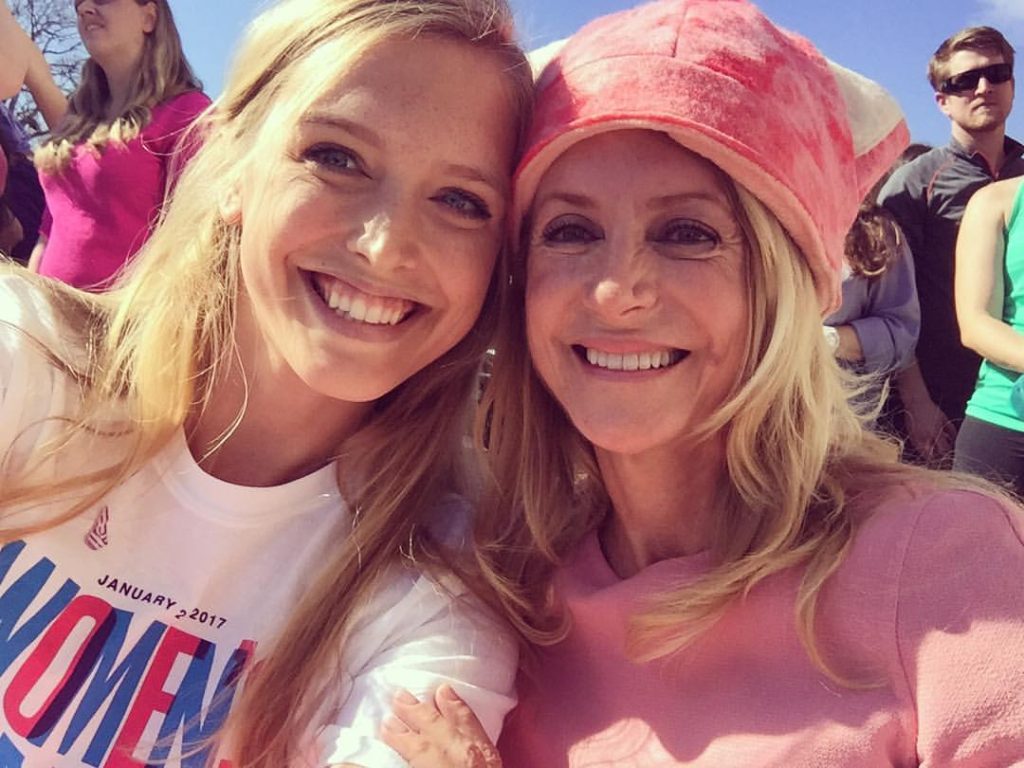
I actually was with Wendy Davis, my boss, in the middle of nowhere Pennsylvania for an event, and that night we were hanging around and having some beers, just talking. And I finally told Wendy in that context, of how we’re urging all these young people to share their stories, and be who they are, and I feel like I need to come clean and do the same thing. For myself but also to be able to be honest in this work we’re doing. She was super supportive. That was the first time I’d ever really come forward to anyone, and it was to Wendy Davis!
But then what I really wanted to figure out too, understanding how at Deeds Not Words we want to help people share their stories in a way that might helps others in their shoes…I was going to wait to be public about it until I felt it was really the right time.
Then our lieutenant governor called a special session this summer, of which a primarily goal was to pass the bathroom bill, which had failed in the regular session. I thought, this is so messed up, and I wanted to be able to help people. And I realized that maybe my perspective would help a little bit.
Because while I wouldn’t be affected by that bill, I could raise some questions to people about this binary notion of gender, sexuality, and of actual biological sex. Because what they kept talking about, the proponents of the bathroom bill here in Texas, was like, “we need to move away from this whole perverted idea of gender fluidity. We need to revert back to biological sex because that’s cut and dry.” I’m like, you know what, no it’s not!
It’s actually not cut and dry, and there are 150 million people worldwide who are scientific evidence of that. So I felt like that was a new perspective that hadn’t really been brought to light in that conversation of the bathroom bill.
And then there’s also this added layer to it, that I’ve talked about with a lot of friends fighting for all sorts of other marginalized communities, which is that I had this unique and lucky ability to “pass” as a full XX female, that nobody would ever know if they walked up to me that I was intersex. And what that means in a legislative context is, I’ve gotten to be more known in the legislature from being Wendy’s right-hand woman, testifying all the time, and bringing in these young students, so all of these senators and reps here in Texas had a sense of who I was. But no one knew this about me.
So it was this added layer of just bringing a new light to that conversation. That it wasn’t just an intersex person coming and raising this conversation, it was someone they knew and had seen there every day. For someone they know to then come in and blow their minds with this new information, it was another way to get different people thinking about it differently. That combination of those two things, my ability to pass and people recognizing me in the legislature, that all kind of combined and really motivated me to use that opportunity to come out.
PIP: What an amazing opportunity to use that platform to blow peoples’ minds!
ARW: Absolutely! When I finally decided to do it, I decided the night before and just didn’t sleep that night, writing my testimony and talking to people. I sent Wendy all of these frantic text messages while she was sleeping. I think she got up to go to the bathroom at like 4 a.m. and saw them and gave me a call. Wendy was so proud of me, and she was like, “You know what you gotta do, Alicia…”
She knows I usually don’t care about my appearance that much, but she said, “You need to blow your hair out, you need wear lipstick, and wear your heels. You go into legislature, you look as ‘female’ as you can, so that when you walk in, all those white male legislators are thinking certain things. Then you open your mouth and start talking, and you’re totally blowing whatever conception they have of what gender means.”
And I think that shows something too, which is that there are so many amazing intersex advocates who are all coming forward now in different ways and talking about it. So there’s someone named Pidgeon in Chicago who really is putting forth an idea of breaking the binary. So they use they pronouns, for example, and they have this whole perspective on the conversation, and I have a different perspective on the conversation, and then Hanne Gaby Odiele, the model I mentioned, has a whole different perspective.
That’s the amazing thing, and you see it in the trans movement and you see it in the queer movement on the whole: the more we feel comfortable living out and being ourselves, you realize there is no “gay person,” there is no “trans person.” We’re all completely different human beings, we just happen to have a condition that makes us more unique than some other folks.
That’s a really cool piece of the LGBTQIA+ movement, I think, is we’re all able to bring our own unique experience to it.
PIP: Yes, I’ve noticed that some intersex people don’t conform to one gender or another.
ARW: Exactly. That’s why it’s so cool that California very recently recognized a third gender. That’s really important. Hopefully we can get other states to move in that direction as well. Because really, nothing is that cut and dry. Whether we think about it in the queer movement, whether it’s biological sex, gender, sexual orientation, but also in terms of race, too. We have so many people who are mixed race and come from different types of families. In this day in age in the world, there are so few people you’re able to put just any sort of stamp on and say you’re 100% something. I think we need to recognize that and move towards accepting that.
PIP: I totally get that. I’m half Jewish, and I’m bisexual, so I feel like I straddle a few different worlds. But to the outside world, I probably look like a straight, “normal” Christian person!
ARW: But that’s the thing, people are always saying they feel “not black enough” and “not gay enough” or “not femme enough” to fit in certain circles. But we all just are who we are. The more we’re trying to shove people into boxes, the more we’re going to realize those boxes don’t actually exist. I think that’s something important to think about with the acronym LGBTQIA+.
I think it’s important, but I also think it’s problematic. I think it’s important, because each of those communities in the acronym has unique issues and problems that they’re facing that need to be addressed. That’s why each letter individually is important. But it’s also problematic because it breaks us into these silos and these boxes that I really don’t feel exist in the first place.
PIP: Yeah, it’s been interesting to see it evolve from LGBT to LGBTQ to LGBTQIA+, but I have a feeling it looks ridiculous to people outside the community. It’s too bad there can’t just be one word to describe everyone in the community instead of always just tacking on more letters.
ARW: Yes, I’ve had this conversation with trans friends too, and they’re like, it’s really just the human movement, just accepting humans for who they are. But unfortunately, I think those letters are still necessary for now, because as I mentioned, each of the communities has some distinct issues that they face over others. And when people see that acronym now, maybe they’ll Google and say, what’s the I? I don’t know what the I is. And all the sudden they’ll understand there are people like that out there.
So it’s kind of a double-edged sword. I’m trying to figure that out too. And hopefully there’s one day when we don’t need any acronym! So it’s important, but at the same time, it does look ridiculous, and to people who are contrary to our movement, they use that against us a lot. They’re like, get it together!
PIP: Yeah! Now that we’re more aware of intersex people, it’s great they’re included in the community since they face so many similar challenges. But in another way it’s interesting that they’re lumped into the LGBTQ movement, because someone like you is intersex, but your sexuality is heterosexual, so you don’t have much in common with the LGB part.
ARW: Exactly, not all intersex people identify as queer or LGBT. That’s why it’s interesting; our needs are unique, too. In a lot of ways we are an LGBTQ issue, but in a lot of ways, we’re a condition that should fall into people that have just physical barriers in their lives, which is a different conversation and way to frame it. It’s not even a different ability, but it’s a biological condition we have that sometimes means we are or we aren’t able to perform certain functions — in my case, naturally bear children — which I think is is different from the rest of the LGBTQIA spectrum.
So intersex is this weird, wonderful group that kinda fits in there, but kinda doesn’t. That’s why I feel compelled to come out myself, among all these other amazing intersex that advocates who have been stepping up over the past few years, because our needs are very unique.
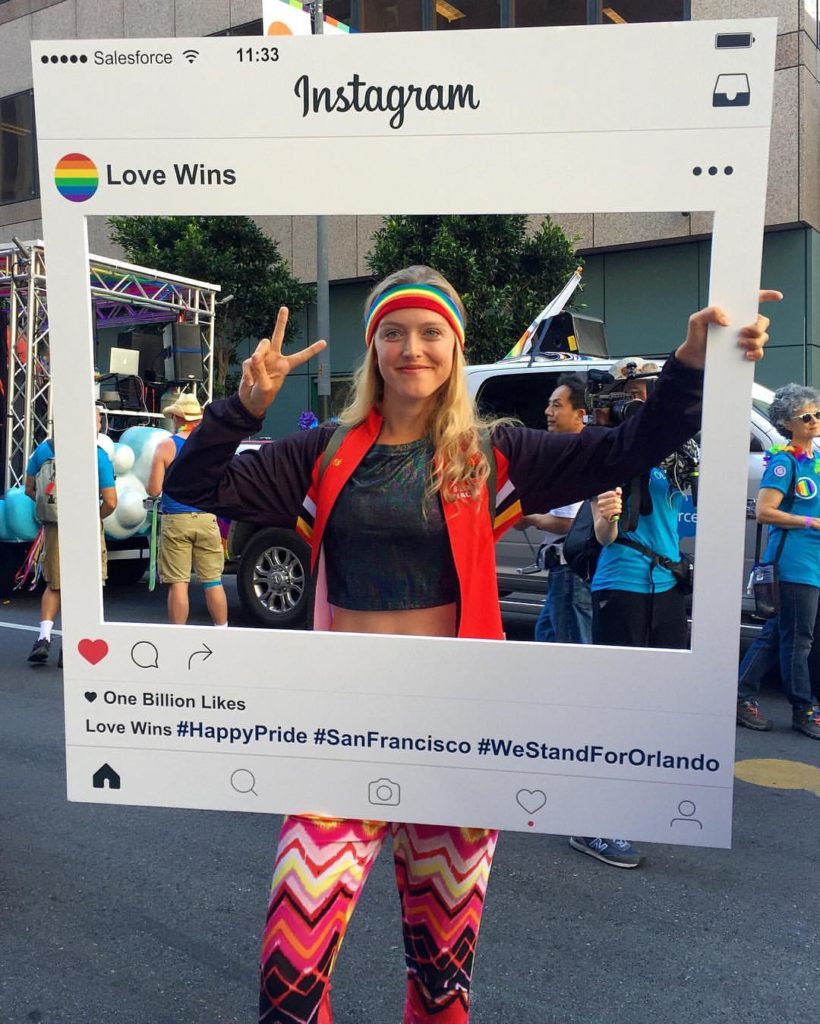
PIP: Absolutely — I see more and more people using “queer” instead of a more specific label because they just want to be themselves, or simply not wanting to use labels at all.
ARW: That’s really what I’m talking about on my panel at South by Southwest, how some people say things like “I don’t feel queer enough, I don’t fit into this.” It’s because these boxes really don’t exist that we’re trying to put people in. We’ve been societally told that they should exist, but they don’t. And when we try to force people into them, it breeds physical, emotional, and psychological problems. Because those boxes don’t exist, so why are we trying to force people to fit into them? And right now, the biggest issue intersex people are facing is these unconsented and medically unnecessary surgeries when they’re kids that are forcing them into one box versus another.
For me, my internal testes were removed, because at the time my family was told they could become precancerous. But a friend of mine, who is also an intersex advocate, has the same condition I do, which is called Complete Androgen Insensitivity, but she still has her internal testes. And she doesn’t have cancer. But that also means she and I have developed differently.
So the more we can raise awareness of this and stop these surgeries from happening in the first place, and the more we can accept there’s just a larger variety of biological sexes than what people are saying, the more research will be done on our community that’s not exploitative and not treating us like specimens, but treating us like humans — so as we live, grow, and we develop, the medical community can best figure out what our needs are. Right now when you’re trying to force people into one box or another when they’re just a kid and then say the deed is done, that means that as we grow older, there are no medical resources, there’s no knowledge about how to best care for our needs. Because we were told that we were “fixed” as babies.
PIP: Did you have to take hormones as part of your condition?
ARW: I still do, yeah, I’m on hormone replacement therapy. I’m lucky that for me, with my condition, it’s just an oral contraceptive at this stage of my life, but that also puts me into this movement right now of being absolutely furious that birth control is no longer required to be covered under our healthcare. That’s another example too, of how our issues really are intersectional. It’s not just LGBTQ issues, it’s also women’s issues, it’s a variety of issues. We face some of the same adversity that other people do. So even though I can’t have kids, I still need birth control to be OK.
PIP: Is there anything else you want people to understand about the intersex community?
ARW: Just that one thing I’ve noticed within the LGBTQ community and some of the organizations that work on those issues — not wanting to minimize anyone’s issue in that movement or prioritize one over another. And that just as I mentioned, hopefully one day we won’t need to fit in these letters of the acronym, because those barriers don’t exist. I hope people will think about that too as they advocate for their issues. And that other queer and non-queer people will hop onto the intersex rights movement as I did, for example, for the trans community in coming out against bathroom bill. Or as I had for my friends during the fight for marriage equality.
I think it’s really important to understand that our movement is intersectional and for people not to trivialize that by only advocating for the issues they personally face. Some people, once their issue is fixed, they wipe their hands. But we need each other’s support!
Want to keep up with Alicia? Follow her on Instagram @xoxy_alicia.

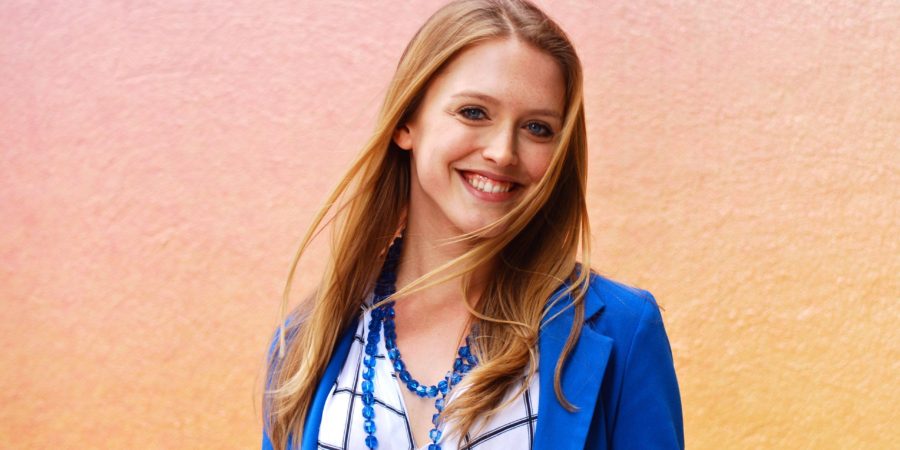
This has really touched me as an intersex of Uganda am so encouraged to live a life just like Alicia and be of great importance and tell a story of my intersex journey
Patricia
[…] who is intersex, and Skidmore bonded over their shared experiences. Shortly after, Weigel shared her story for the first time in front of the Texas State Legislature during a testimony against a bathroom […]
[…] who is intersex, and Skidmore bonded over their shared experiences. Shortly after, Weigel shared her story for the first time in front of the Texas State Legislature during a testimony against a bathroom […]